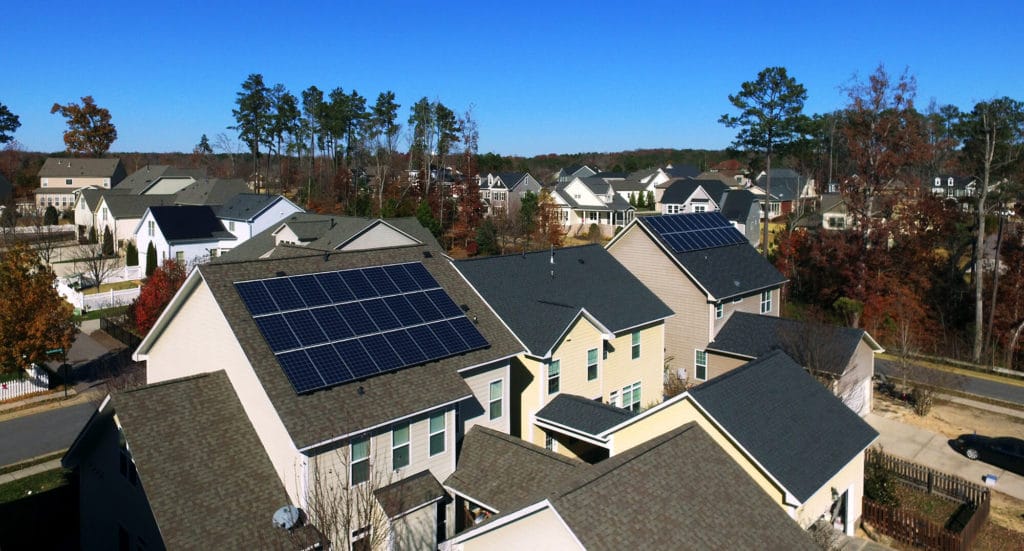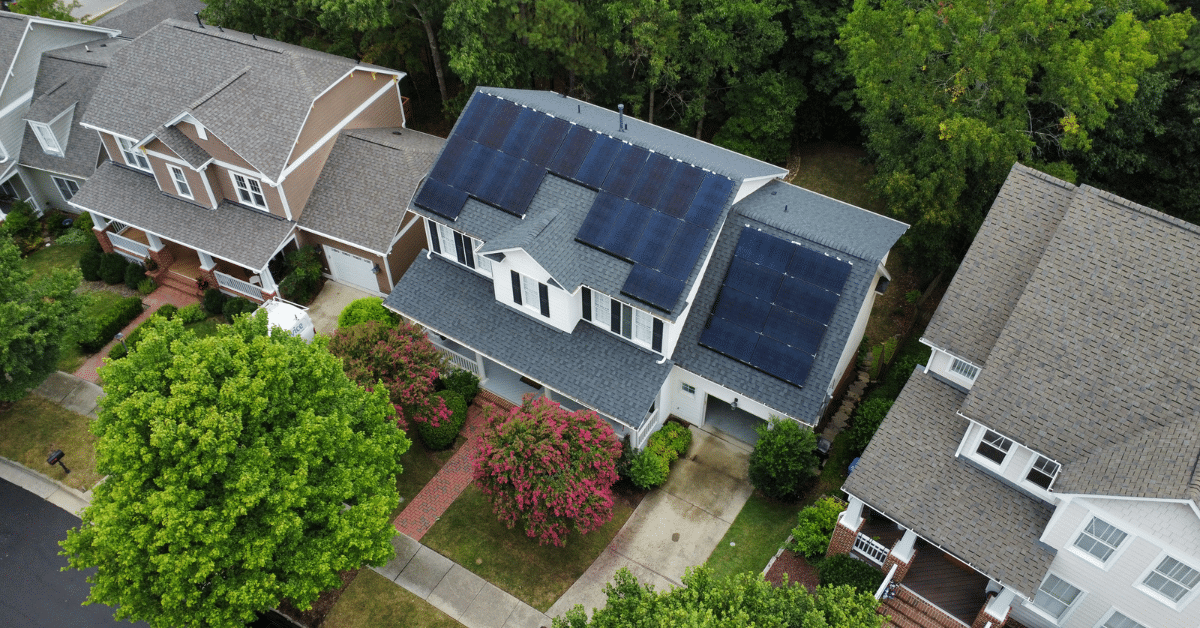- Alyssa Hardbower
- Matt Valentine
- March 12, 2019
- Solar Power
We are excited to introduce this guest post written by Matt Valentine, a local Chapel Hill resident and passionate solar advocate. This article was originally published in Governor’s Living Magazine after Matt had solar installed on his home. Matt is actually not an SEM customer, but there is always room in our Shine Tribe for those who are enthusiastic about solar and want to spread their excitement and experiences in powering up with the sun.
We are thankful to have crossed paths with Matt while he was researching options on his solar journey. As we always like to tell homeowners, it is extremely important to educate yourself about how solar works and to get several local quotes before investing in the sun so you can make sure going solar is a good option for you. Check out Matt’s article on why it’s a beautiful time to go solar in our great state of North Carolina!
Good Day Sunshine
Guest Post Written by Matt Valentine
Solar electricity generation is a hot technology. Nationally, solar capacity is expected to double in the next five years. North Carolina ranks 2nd in solar capacity, only behind California. The growth of residential solar is good news for many reasons, here’s why North Carolina is particularly stellar in solar, and why homeowners should consider installing solar generators.
Carolina Blue Sky: North Carolina ranks 18th among states with clear days, the Raleigh area averages 217 days per year at least partly sunny. If God is not a Tar Heel, at least he must be a fan of solar electricity in NC!
NC State Law: Thanks to strong state policy and regulatory support, over 500,000 NC homes are powered by solar, and prices have fallen 43% in the last 5 years. NC’s Solar Access Law makes it viable for just about any home to have solar panels installed. In addition, the NC Competitive Energy Solutions law, along with the federal solar tax credit, literally cut the cost in half.
Why should a homeowner go solar?
Answer #1: Free electricity!
What are we talking about? Perhaps better asked as “Watt-hour we talking about?” A Watt (W) is a measure of instantaneous power. For example, an LED bulb is 10 W, TV 150 W, fridge 300 W, and central A/C 3500 W. Utility companies charge an average of 12 cents per 1000 W per hour, called kiloWatt-hour (kWh) – a measure of energy over time. Twelve cents doesn’t sound like much, but southern homes may use 2000 – 3000 kWh per month in the hot A/C season, translating to $240 – $360.
Solar panels are also measured in Watts. A typical home might support about 7 kW of panels, averaging 5 hours of good sun per day will save about $125 per month. When the A/C is consuming the most electricity in the summer sun, solar panels are also generating the most to offset the cost – a solar symbiosis. Spring and fall are interesting, as the solar panels can generate more electricity than the home uses, and our local utility company provides 1-for-1 Watt-hour credits to be used later for free, called net-metering. The credits are measured with a new bi-directional meter that tells the utility company how much electricity the home is supplying back to the grid.
Answer #2: “Lux Libertas”
The UNC motto meaning Light and Liberty, is amazingly appropriate. Lux/light as in solar power, will be among several keys to Libertas/freedom going forward. Historically, much of America’s growth has been enabled by fossil fuel consumption, the resulting emissions, and the growing need for energy security help to protect our freedom. A great read is Thomas Friedman’s Hot, Flat, and Crowded. It discusses how Americans can take the lead in clean energy technology, which is about more than tree hugging. It’s patriotic, it’s about generating national power in the world economy, and ensuring energy security and independence from entities that attempt to dictate fuel markets. On a local level, residential solar generators help offset the load on the utility grid, making electricity distribution more resilient to population growth and natural disasters. Alternative energy growth also creates new employment opportunities, for example Sun Dollar Energy, a local small business, hires much of its staff from Appalachian State’s Sustainable Technology degree program. Southern Energy Management is a larger local company that caters to both residential and commercial solar customers.
It’s easy to get started:
- Contact local solar vendors, negotiate pricing, schedule an installation.
- File for the 30% federal tax credit (this will begin phasing down in 2020) and ask your utility company about current rebates.
- Receive free electricity. No maintenance required.
The payback period is about 9-10 years. And honestly, to have the panels installed and generating, and to see the first month of free electricity, all makes the payback feel more immediate.
How much can you save?
Request a free solar + battery storage evaluation today!
About Us
North Carolina’s solar power and building performance expert. Founded in 2001, we’ve worked for 20+ years to improve the way people make and use energy.














